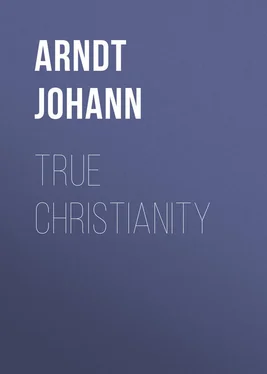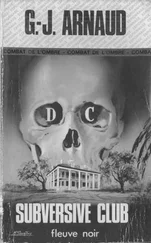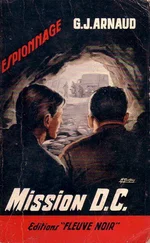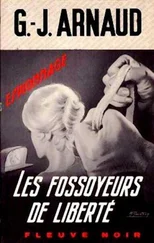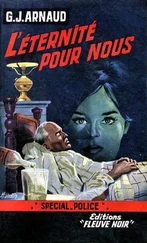Johann Arndt - True Christianity
Здесь есть возможность читать онлайн «Johann Arndt - True Christianity» — ознакомительный отрывок электронной книги совершенно бесплатно, а после прочтения отрывка купить полную версию. В некоторых случаях можно слушать аудио, скачать через торрент в формате fb2 и присутствует краткое содержание. ISBN: , Жанр: foreign_antique, foreign_prose, на английском языке. Описание произведения, (предисловие) а так же отзывы посетителей доступны на портале библиотеки ЛибКат.
- Название:True Christianity
- Автор:
- Жанр:
- Год:неизвестен
- ISBN:http://www.gutenberg.org/ebooks/34736
- Рейтинг книги:5 / 5. Голосов: 1
-
Избранное:Добавить в избранное
- Отзывы:
-
Ваша оценка:
- 100
- 1
- 2
- 3
- 4
- 5
True Christianity: краткое содержание, описание и аннотация
Предлагаем к чтению аннотацию, описание, краткое содержание или предисловие (зависит от того, что написал сам автор книги «True Christianity»). Если вы не нашли необходимую информацию о книге — напишите в комментариях, мы постараемся отыскать её.
True Christianity — читать онлайн ознакомительный отрывок
Ниже представлен текст книги, разбитый по страницам. Система сохранения места последней прочитанной страницы, позволяет с удобством читать онлайн бесплатно книгу «True Christianity», без необходимости каждый раз заново искать на чём Вы остановились. Поставьте закладку, и сможете в любой момент перейти на страницу, на которой закончили чтение.
Интервал:
Закладка:
§ 11. During the earlier years of Arndt's residence in Brunswick, as a co-pastor of the church of St. Martin, his life was comparatively peaceful and happy. The purity of his character, the soundness and power of his doctrine, and the diligence and fidelity manifested in his pastoral labors, could not fail to command the respect, and attract the love of all candid persons. But he was at length subjected to trials of a new and painful character, and became the victim of the hostile and persecuting spirit of men from whom a very different course of conduct might have reasonably been expected. The origin of these new difficulties has not always been clearly understood; while some have regarded Arndt as worthy of the censures of those who assailed him, others are disposed to condemn those assailants in unqualified terms. It is strange that, even at this comparatively remote period, such judgments are sometimes expressed in language which betrays personal feeling rather than it announces the calm judgment of a later and disinterested generation.
§ 12. It is here necessary to cast a glance at the history of the times which preceded and followed the eventful year 1555, in which Arndt was born, a year ever memorable as the one in which the signing of the articles of the Peace of Augsburg secured a temporary external repose for the Lutheran Church. This “Peace” terminated at least the horrors which had followed the introduction, in 1548, of the Augsburg Interim , by which the newly-established Protestant doctrine was seriously endangered. The provisions of this Interim were enforced with such merciless tyranny by popish authorities, that in South Germany alone about four hundred faithful Lutheran pastors, who could not conscientiously accede to an arrangement which might possibly restore the full authority of the errors and superstitions of Rome, were driven, as exiles, with their families, from their homes. The spirit of the Christian martyrs of the early ages of the Church revived in these heroic men, and they clung with undying tenacity to their holy faith.
§ 13. That faith now encountered new enemies, who did not resort to fire and the sword, but who adopted more insidious means for corrupting divine truth; and again, assaults like theirs, only increased the jealousy with which the genuine Lutherans guarded the purity of their doctrinal system. It was the only gift of heaven, which sin and Satan could not touch, and which retained all its unsullied holiness. The soul of man had become corrupt; the body was subject to disease and death; the world, fair as it was, and rich in the gifts of God, had nevertheless been made by sin to bring forth thorns and thistles. But the Gospel truth, which conducted men to Christ and heaven, remained in all its purity and power. These men were willing to suffer and die, but while they did live, they could not relax the grasp with which they held fast to evangelical truth. Now, amid the political and religious commotions of that stormy age, could we expect that devout men should say, “Peace, peace;” when there was no peace? (Jerem. 6:14.)
§ 14. Let us illustrate this subject. Schwenkfeldt, for instance (born in 1490; died, 1561), an opponent of both the Lutherans and the Reformed, as well as of the Papists, and, accordingly, constantly engaged in controversies with all parties, declared that Luther's uncompromising determination to maintain the authority of the written word of revelation, the Bible, was equivalent to a worship of the letter. He assigned, in his fanaticism and morbid mysticism, a rank to an inner and direct word of the Divine Spirit, which he asserted that he received, far above that of the written word of God. He refused to make any distinction between the divine act of the justification of the believer, on the one hand, and the progressive sanctification of the believer, on the other. He taught that the two natures of Christ, the divine and the human, were so fused together, or, rather, that the flesh of Christ was so absolutely deified or converted into God himself, that no distinction between them remained, – that the regenerate could live without sin, etc. He succeeded, in spite of the crudeness, one-sidedness, and unsoundness of his doctrines, in attracting many disciples. His death, which occurred in 1561, a few years after Arndt's birth, did not terminate the widespread confusion which he had created in the Protestant Church; the dread of that sickly form of mysticism which he attempted to establish, long remained. The fear was naturally entertained that it might lead many astray, who, while they did not otherwise fraternize with Schwenkfeldt in his wild and absurd course, might be deluded by his claims to superior religious intelligence and holiness.
§ 15. The disastrous influences of the demagogue Thomas Münzer (born in 1490), and of his fanatical party, the Zwickau prophets, on sound doctrine and sound morals, as well as the blood which they had shed, were still vividly remembered. – Servetus, the Unitarian, had perished, but he left a seed behind; the doctrine of Christ's deity still remained a point of attack. And besides these false teachers, several others, who were originally connected in various modes with the Lutheran Church, promulgated at various times opinions which seemed to be subversive of all Scripture doctrine. – Agricola, who had originally been an active adherent of Luther, gradually departed from the faith. He unquestionably betrayed the interests of Protestantism by sanctioning the Augsburg Interim of 1548. He engaged in a controversy, at first with Melanchthon, and then with Luther himself, on the subject of the proper “Use of the law” – the Antinomistic controversy – maintaining that the law was no longer of importance to the believer, and that the Gospel alone should be preached. He died in 1566, when Arndt was about eleven years old. The confusion in the church, which he created by his dangerous sentiments on several points, was long painfully felt. – The Osiandrian controversy, respecting Justification, and its relation to Sanctification, began in 1549, and closed only when Arndt was already a student. – The Majoristic controversy originated in the public declaration made by G. Major, that “good works are necessary to salvation .” The fears which such a doctrine, that savored of popery, produced among orthodox and devout Lutherans, were excessive. Those who opposed Major, were alarmed by his unguarded expressions, and apprehended that the Gospel doctrine of Justification by faith in Christ alone, without human works or merit , would be endangered, unless they silenced him. The controversy, in its most energetic form, terminated about seven years after Arndt's birth, but the indirect effects of the misconceptions connected with the great topic of this controversy, were deeply felt by him. – The Synergistic controversy, relating to the question whether man could co-operate with the Holy Spirit in the work of his conversion, began in the year in which Arndt was born, and was maintained with great energy during several years. – The so-called Cryptocalvinistic controversy, referring mainly to the doctrine of the Lord's Supper, and involving certain important questions respecting the Person of Christ, commenced about three years before Arndt's birth, and agitated the church during many years. – These, and other subjects on which also controversies had arisen, were, in the good providence of God, at length calmly considered by learned and devout Lutheran theologians, conscientiously examined in the light of the divine Word, impartially decided, and set forth, in the year 1580, in the Formula of Concord, the last of the special Lutheran creeds, all the doctrines of which Arndt cordially received, as he repeatedly declared in an official manner on various occasions, in his writings, in his last will and testament, and on his death-bed. (See below §§ 2424, 2525.) The very great reverence with which he regarded this noble creed, and his attachment to it, are to be ascribed not only to the spotless purity of the doctrines which it sets forth, but also to the good work which it performed in successfully and permanently deciding several very important questions which had latterly arisen, and on which the preceding creeds had not authoritatively and fully pronounced. It is, however, obvious, that even after these storms subsided, the waves would long remain in commotion, and it was precisely in these troublous times that Arndt labored in the ministry.
Читать дальшеИнтервал:
Закладка:
Похожие книги на «True Christianity»
Представляем Вашему вниманию похожие книги на «True Christianity» списком для выбора. Мы отобрали схожую по названию и смыслу литературу в надежде предоставить читателям больше вариантов отыскать новые, интересные, ещё непрочитанные произведения.
Обсуждение, отзывы о книге «True Christianity» и просто собственные мнения читателей. Оставьте ваши комментарии, напишите, что Вы думаете о произведении, его смысле или главных героях. Укажите что конкретно понравилось, а что нет, и почему Вы так считаете.
